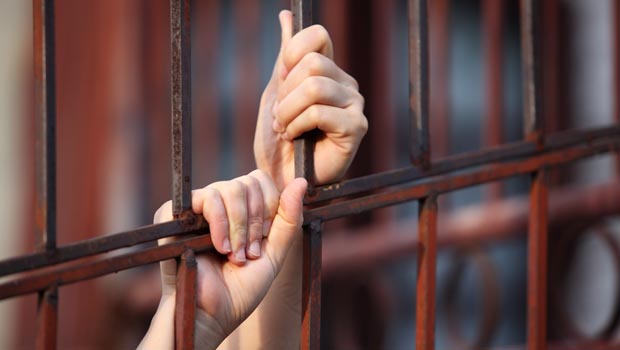Denied Insulin in Prison

An Alberta man with Type 1 diabetes was recently pulled over by the Royal Canadian Mounted Police for an unpaid speeding ticket, and he was lucky it didn’t end up costing him his life.
According to a report in CBC News – Edmonton, Mitchell Chernoff was pulled over during a weekend traffic stop in late June and arrested for the unpaid ticket. At the time of his arrest, his insulin was taken away. He was processed at the Edmonton Remand Centre, where he asked if he could have his insulin back. No one gave it to him. The nurses tested his blood sugar at one point, and it registered 360 mg/dl. He told them he felt terrible. Still no medication came, and his numbers kept rising. In total, he was deprived of insulin for 20 hours. Alberta health officials insist that Chernoff was being properly treated and that there was no medical emergency. In the report, Chernoff disagreed.
“You’re torturing a diabetic when you don’t give them their insulin,” he said.
While Chernoff’s story made the rounds in the blogosphere, it unfortunately wasn’t an isolated instance. Some recent instances of similar treatment include:
-In 2010, a New York jury awarded $17.5 million to former New York City inmate Jose Vargas because he was denied insulin for 58 hours after being arrested for a minor drug charge. According to a New York Daily News report, Vargas, who has Type 1 diabetes, had seizures and suffered brain damage. Officers mistakenly believed he had Type 2 diabetes and could have controlled his blood sugar levels through diet.
-In 2012, the family of Deborah Braillard sued Maricopa County officials in Arizona (including the Sheriff’s Office led by outspoken Sheriff Joseph M. “Joe” Arpaio) for wrongful death. Braillard, a woman with Type 1 diabetes who was picked up on a drug charge, was denied insulin for 3 days, despite pleading for help and showing physical signs of distress. According to a report by ABC-15 Arizona, law enforcement officials mistakenly believed the symptoms she exhibited were related to illegal drug withdrawal. Braillard went into a coma and never regained consciousness.
-In 2013, Sarah Tibbetts died two days after being booked for marijuana possession and credit card fraud in Irving, Texas. Tibbetts, who had brushes with law in the past, always made a habit to tell police and prison officials of her Type 1 diabetes and need for insulin, which is available over the counter in Texas, according to a report in Texas Monthly. This time, however, prison officials called Tibbetts’ mother for insulin the day after she was booked, but her mother was in California and told them they needed to find another way to obtain it. The next day, Tibbetts was found dead in her cell. One prison official told reporters they knew she needed insulin before she died.
In a 2008 position paper, the American Diabetes Association estimated that there were some 80,000 people with diabetes (Type 1 and Type 2) in the U.S. prison and jail systems at any given time. That number is expected to increase as the prison population ages, thanks to longer sentencing guidelines. The ADA calls for adequate training on diabetes for all prison employees, and that people with diabetes who state they are dependent on insulin should have their blood sugar levels checked within two hours of being processed; medication should continue without interruption. ADA officials warn that symptoms of hyperglycemia and hypoglycemia look a lot like drug withdrawal.
Unfortunately, inmate advocacy groups warn that prison health care systems often don’t meet the need of inmates, according to a New York Times special investigation. Until the 1960’s, it was up to the states to provide health care for inmates, and some systems did a horrific job caring for the incarcerated; the deadly 1971 Attica riots were sparked partly by complaints of healthcare neglect. In 1976, the Supreme Court ruled that states and the federal government must provide adequate health care for inmates. Since then, private prison health care has become a billion-dollar industry, but there also have been many charges of inadequate staffing and neglect. Diabetes care in prison is also complicated by issues of non-compliance among some inmates with diabetes, as well.
It’s important for a person with diabetes to speak up about their insulin needs at the time of arrest and at the time of processing. It’s also a good idea for family members to advocate on behalf of those being arrested. For more information or for ways to advocate for improved health care for those in U.S. jails and prisons, you can contact the Center for Prisoner Health and Human Rights at prisonerhealth.org.
Thanks for reading this Insulin Nation article. Want more Type 1 news? Subscribe here.
Have Type 2 diabetes or know someone who does? Try Type 2 Nation, our sister publication.